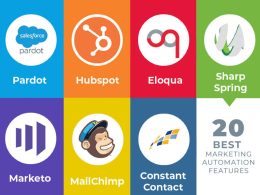Introduction
The world of work is rapidly evolving. With technology advancing at an unprecedented rate, changing economic conditions, and the global impact of the COVID-19 pandemic still being felt, the job markets of 2025 will look very different from what we know today. For many, the future of work seems uncertain, but it also brings incredible opportunities.
In this article, we will explore the key trends shaping the job markets for 2025. From the rise of remote work to the impact of artificial intelligence (AI), we’ll dive into what to expect and how you can prepare for the future of work. Whether you’re just starting your career or looking to adapt to new developments, understanding these trends will help you stay ahead of the curve.
What is the Future of Work?

The “future of work” refers to the ongoing changes in how we work, the types of jobs available, and the skills required to succeed. These changes are driven by technology, social shifts, and economic transformations. By 2025, we will likely see a more flexible, digital, and interconnected workforce.
Job markets are being reshaped by technological advancements, changing worker preferences, and the demands of a global economy. In this context, the future of work will be characterized by more automation, remote job opportunities, and new industries emerging in response to societal needs.
Key Trends in the Job Markets for 2025

1. Remote Work and Hybrid Models
One of the most significant shifts in the workplace over the past few years has been the rise of remote work. With the ongoing pandemic and advancements in digital technologies, remote work has become the norm for many companies. In 2025, this trend will continue to thrive as more companies adopt hybrid work models, allowing employees to work from home part-time or full-time.
Remote work offers flexibility and a better work-life balance, making it a highly attractive option for many workers. This shift will also open up opportunities for people to work in companies that were once geographically distant, allowing for a more global job market.
2. Automation and Artificial Intelligence (AI)
Automation and AI are transforming industries across the globe. In 2025, we can expect a larger share of jobs to be automated, particularly in areas like manufacturing, customer service, and data analysis. However, this doesn’t necessarily mean that human workers will be replaced entirely.
Instead, jobs will evolve, with more emphasis on roles that require human creativity, problem-solving, and emotional intelligence—skills that machines cannot replicate. For example, AI will assist with routine tasks, while humans will focus on higher-level decision-making and strategic planning.
3. Growth of the Gig Economy
The gig economy, which refers to short-term, flexible jobs or freelance work, has been growing rapidly in recent years. By 2025, this trend will continue, with more people opting for freelance or contract work instead of traditional full-time positions.
This shift is driven by the desire for greater flexibility, independence, and the ability to work on multiple projects simultaneously. Gig economy platforms like Uber, Fiverr, and Upwork are becoming mainstream, allowing workers to connect with clients from all over the world.
4. Rise of Tech-Driven Jobs
The demand for tech-related jobs will continue to soar in 2025. As businesses rely more on technology to operate, there will be an increasing need for IT professionals, software developers, cybersecurity experts, data analysts, and AI specialists. The rapid development of cloud computing, machine learning, and blockchain technology will also create new opportunities in the tech sector.
To keep up with these changes, workers will need to invest in upskilling and continuous learning. Those with a solid foundation in tech skills will be in high demand, making the tech industry one of the most promising sectors for career growth in the next few years.
5. Sustainability and Green Jobs
With climate change and environmental issues becoming more urgent, there will be a significant rise in green jobs in 2025. Companies and governments are increasingly focused on sustainability, creating new roles in renewable energy, environmental conservation, waste management, and sustainable agriculture.
These jobs will require specialized knowledge in areas like environmental science, engineering, and policy. As the world pushes toward greener practices, workers in these fields will play a crucial role in shaping the future of the planet.
6. The Importance of Soft Skills
While technical skills will continue to be important, soft skills like communication, collaboration, and emotional intelligence will become even more valuable in 2025. As work environments become more diverse, global, and digital, the ability to work effectively with others, navigate conflict, and adapt to change will be essential.
Workers will need to develop strong interpersonal skills and emotional intelligence to thrive in the evolving job market. These skills will be particularly important in leadership roles, customer service positions, and jobs that require teamwork.
How to Prepare for the Future of Work

As we look ahead to 2025, it’s important to understand that the job market will continue to evolve. To prepare for the future of work, here are some practical steps you can take:
- Invest in lifelong learning: As new technologies and industries emerge, it’s essential to stay current with the latest trends and tools. Enroll in courses, attend workshops, and take advantage of online learning platforms to keep your skills sharp.
- Develop a growth mindset: Embrace change and be open to learning new skills. The ability to adapt and grow in response to shifts in the workplace will be key to staying competitive in the job market.
- Focus on digital skills: Technology will continue to drive the future of work, so having strong digital literacy is essential. Familiarize yourself with basic coding, data analysis, and digital tools to stay relevant in the job market.
- Strengthen your soft skills: While technical skills are important, employers will also look for candidates who can communicate well, work in teams, and solve problems creatively. Build your emotional intelligence and leadership abilities to stand out in the job market.
The Future of Work Beyond 2025

The future of work after 2025 will likely be even more connected, fast, and flexible. We’ll see more people doing freelance or part-time work from anywhere. Offices may become smaller as remote teams grow. New jobs will keep appearing in areas like climate tech, digital safety, and virtual worlds. At the same time, people will want more balance between work and life. Companies that offer flexible hours, learning chances, and fair pay will attract the best workers. As things keep changing, staying open to learning and trying new things will be the best way to grow in your career.
Comparative Table: Key Trends in Job Markets for 2025
| Trend | Key Features | Impact on Workers |
|---|---|---|
| Remote Work & Hybrid Models | Flexibility, work-from-home options | Better work-life balance, access to global jobs |
| Automation & AI | Increased automation, AI technology | Shift to jobs that require creativity, strategy |
| Gig Economy | Freelance and contract work | More independence, flexible schedules |
| Tech-Driven Jobs | Demand for IT, software, AI specialists | High demand for tech skills, continuous learning |
| Sustainability & Green Jobs | Roles in renewable energy, conservation | New job opportunities in green industries |
| Soft Skills | Communication, emotional intelligence | Increased importance in leadership and teamwork |
Conclusion
The future of work in 2025 will be shaped by rapid technological advancements, changing societal needs, and evolving worker preferences. Remote work, automation, the gig economy, and the rise of tech-driven jobs are just a few of the trends that will define the job market.
As the workplace continues to evolve, workers will need to stay flexible, adaptable, and proactive in developing the skills necessary to succeed in this new environment. Whether it’s embracing remote work, upskilling in tech, or honing soft skills, the future of work offers endless opportunities for those willing to embrace change.
Call to Action
Are you ready for the future of work? Start preparing today by investing in your skills and embracing the trends shaping the job market for 2025. Explore online courses, stay informed about new technologies, and get ready to thrive in the workplace of tomorrow.












